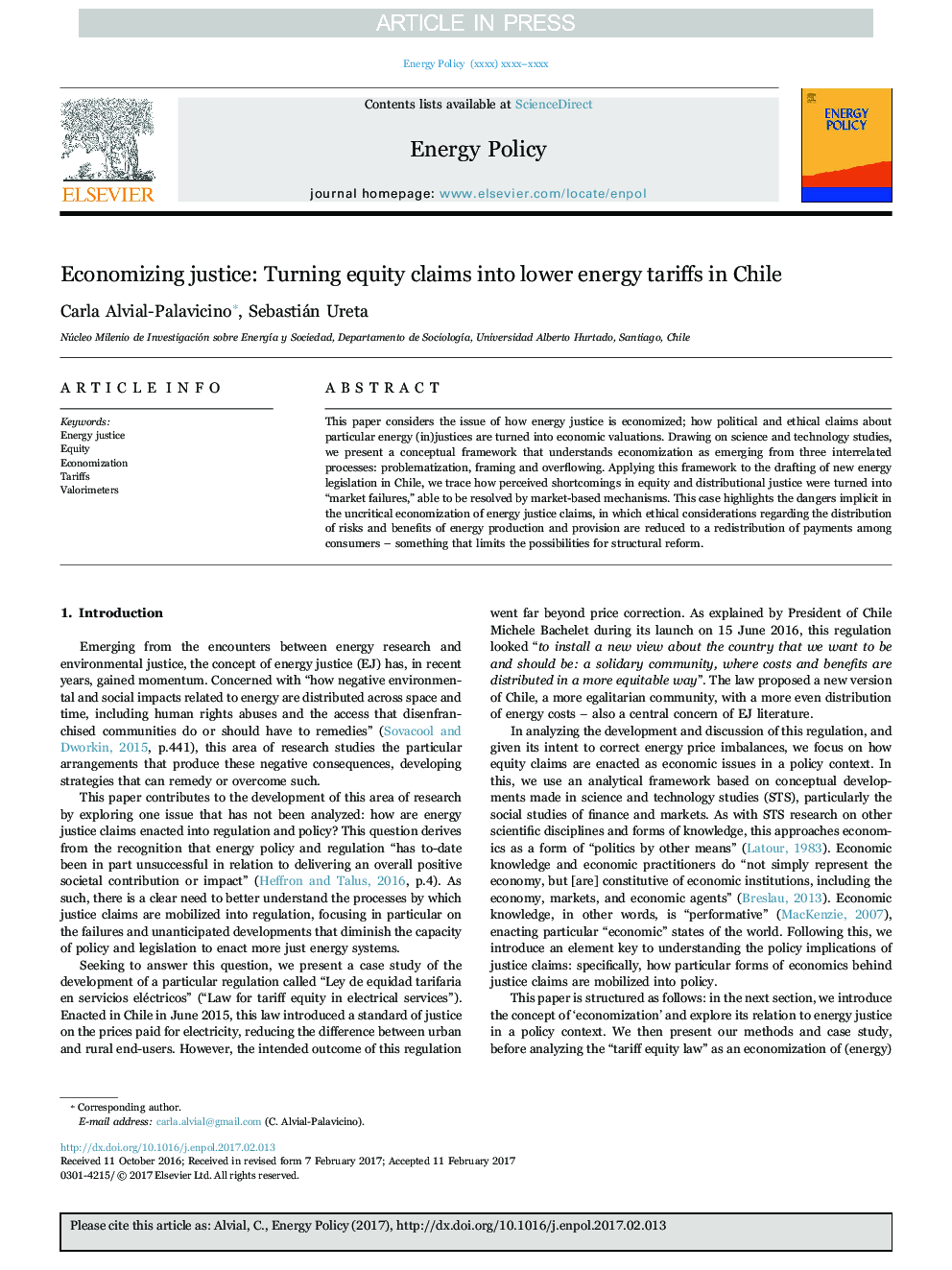| Article ID | Journal | Published Year | Pages | File Type |
|---|---|---|---|---|
| 5105932 | Energy Policy | 2017 | 6 Pages |
Abstract
This paper considers the issue of how energy justice is economized; how political and ethical claims about particular energy (in)justices are turned into economic valuations. Drawing on science and technology studies, we present a conceptual framework that understands economization as emerging from three interrelated processes: problematization, framing and overflowing. Applying this framework to the drafting of new energy legislation in Chile, we trace how perceived shortcomings in equity and distributional justice were turned into “market failures,” able to be resolved by market-based mechanisms. This case highlights the dangers implicit in the uncritical economization of energy justice claims, in which ethical considerations regarding the distribution of risks and benefits of energy production and provision are reduced to a redistribution of payments among consumers - something that limits the possibilities for structural reform.
Keywords
Related Topics
Physical Sciences and Engineering
Energy
Energy Engineering and Power Technology
Authors
Carla Alvial-Palavicino, Sebastián Ureta,
